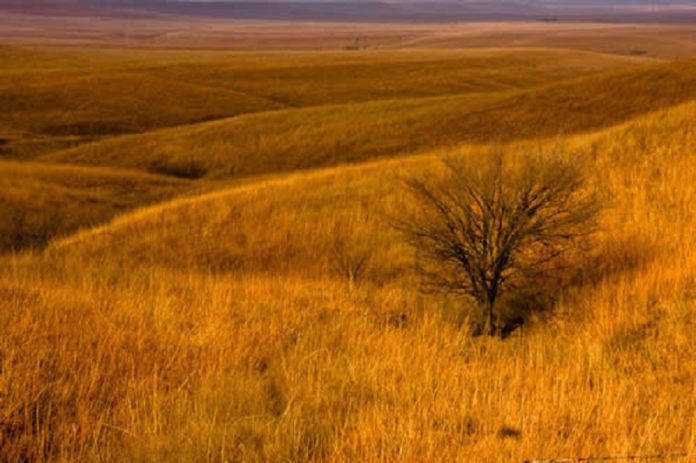Good morning everyone:
Finally. The 2020 legislative session is now behind us. And even though it basically was over March 19 with a wrapup overnight session on May 21, it seemed like it never ended.
It was quite a couple months: a couple courtroom battles, late-night court decisions and an Easter weekend anyone involved in Kansas politics probably won’t forget any time soon.
Now it’s time to pivot and look toward this year’s elections. Hope everyone is getting a breather (we’re not). Let’s start with the significant stories we published last week and move onto the stories you may have missed but need to know.
- Here are election capsules from all 40 Senate districts.
- Here are election capsules from all 125 House Districts.
- The Legislature passed a new emergency powers billl.
- The Senate rejected Gov. Laura Kelly’s appeals court nominee.
- Senators question appeals court nominee on position on drugs.
- Lawyers from across the state react to Senate’s decision to vote down appeals court nominee.
- Governor vetoes property tax, banking and education bills.
- Senators unsuccessfully try to save property tax and education bills.
- Attorney general to appeal proof-of-citizenship case to Supreme Court.
- Kelly named a new public affairs director.
- State Rep. J.R. Claeys is mounting a primary challenge against Sen. Randall Hardy.
- State Rep. Don Hineman retiring after six terms.
Coronavirus pandemic & car crashes
Vehicle crashes plunged in Kansas as we stayed at home and drove less during the coronavirus pandemic, state highway data show.
The data show that vehicle crashes were down about 44% for the first five months of the year, especially in April after Gov. Laura Kelly issued her stay-at-home order to respond to the pandemic.
So far, the state has recorded 14,484 vehicle crashes, down from 25,733 for the same period in 2019, according to preliminary highway department data. Fatal crashes are down 7.2% overall for the year.
Highway planners caution that the numbers are still incomplete and can change as law enforcement agencies from across the state report crashes.
A pronounced drop-off occurred in April, when there were 1,335 reported crashes, down 72.5% from 4,862 in April 2019.
The number of fatal car crashes dropped to 12 from 32, and the number of injury crashes decreased to 306 from 1,102.
In May, crashes were down 77%, falling to 1,275 from 5,558 a year earlier. The number of fatal crashes dropped from 32 to nine. The number of injury crashes declined from 1,160 to 308.
Here is a chart the transportation department produced for crashes from March to May when the economy was mostly shut down to stop the spread of the virus.
All of this can be tied to the fact that the country drove less during the economic shutdown.
Kansas saw a 15.3% decline in miles driven in March compared to the same month the year before.
There were about 2.2 billion miles traveled in March 2020 compared to about 2.6 billion in March 2019.
Numbers for April and May were not yet available.
Across the country, states are seeing a decline in fatal crashes.
CBS News recently reported that at least 20 states have seen a decline in fatal crashes during the pandemic, although there have been some states such as Louisiana, Minnesota and Oklahoma that have seen increases.
And then there’s this story from ABC News that suggests drivers have been getting more reckless on roads clear of traffic during the pandemic.
Abortions down
Kansas abortions dropped slightly during 2019 but remain higher than they were a couple years ago, new preliminary state data shows.
A new state report shows there were 6,916 abortions performed in Kansas during 2019, down about 2% from the 7,048 in 2018. It’s still higher than the 6,826 abortions performed in 2017 and the 6,820 in 2016.
Drug-induced abortions continue to make up the largest number of abortions in the state.
About 64%, or 4,446, were drug-induced abortions, reflecting an increasing trend seen in Kansas and elsewhere. Four years earlier, about 44% of all abortions performed in Kansas were drug induced.
Ranked-choice voting
Kansas could move to ranked-choice voting without needing to amend the state constitution, a new attorney general’s opinion states.
Attorney General Derek Schmidt last week issued an opinion that said the Kansas Constitution only prescribes the physical manner in which votes may be cast.
It does not set out the manner in which votes are to be allocated to the candidates.
“We conclude that because…the Kansas Constitution is silent on the manner in which votes are allocated to the candidates, it does not prohibit the use of ranked-choice voting,” the opinion said.
The opinion was sought by Republican state Rep. Adam Smith.
The Kansas Democratic Party used-ranked choice voting in the presidential primary last month.
In ranked-choice voting, each voter ranks the candidates in order of their preference.
When election results are tallied, if no candidate receives more than 50% of the first-choice votes cast, the candidate with the fewest first-choice votes is eliminated from the contest.
The ballots listing the eliminated candidate as their first choice are then distributed to the candidates those voters ranked as their second choice.
The process continues until one candidate has received more than 50% of the votes cast.
Coffee talk
Early Saturday morning, Twitter was set ablaze about a coffee shop in McPherson canceling a meet-and-greet that Republican U.S. Senate candidate Kris Kobach had scheduled for the establishment.
Craft Coffee Parlor posted a message Friday on Facebook saying that it had requested Kobach cancel the event.
“While we want to encourage a safe place for conversation and discussion, we realize that this is not the time for Kris Kobach,” the Facebook post said.
“This conversation may be divisive and we believe that difficult times like these call for unity to focus on things that matter most.
“We now recognize that when requests are made to use our space, more consideration is needed. We are continually working to build a better community and this experience will shape how we handle situations in the future.”
Reached Saturday, Kobach and his spokeswoman Danedri Herbert said the meet-and-greet at the coffee house proceeded as scheduled.
“We actually weren’t canceled,” Herbert said.
They said they met with about 25 to 30 people, including representatives of Black Lives Matter. The event lasted about an hour, Herbert said.
“It ended up being a really interesting discussion,” Kobach said.
He said it was his impression that the coffee shop owner was worried that the event might turn into a protest.
“We had a nice civil discussion inside the coffee shop,” Kobach said.
Herbert said she understood that there had been protests planned in McPherson and that the coffee shop owner didn’t want the business to become a flash point.
Herbert told the proprietor that the event had already been promoted and that supporters couldn’t be turned away.
Herbert said the owner didn’t want a rally, something the campaign didn’t intend.
The owner didn’t return a call Saturday, but comments on the coffee shop’s Facebook page indicate the meet-and-greet did occur.
“I’m glad you rethought this, and applaud your decision. I understand he showed up anyway this morning — alarming! Good luck and God bless you and your establishment,” posted Donna Viola.
“Great discussions with Kris Kobach and McPherson community members at Craft Coffee and Luke’s Babershop this morning! Thanks everyone!” posted James Bohnenblust.
COVID clusters revealed
The Kansas City Star on Sunday produced an intriguing piece that goes into detail where the COVID-19 clusters are located acoss Kansas. The Star reveals that Lansing Correctional Facility was the largest single source of the state’s COVID-19 cases followed by the Tyson Foods meatpacking plant in southwestern Kansas.
New Saline County GOP chair
Brenda Smith has become the new chair of the Saline County Republican Party, replacing Clarke Sanders, who is running for the Kansas House. Sanders is now running for the seat now held by state Rep. J.R. Claeys, who is running for the state Senate.
Struggling renters, landlords
Gov. Laura Kelly said Friday her administration is looking at how it may use federal coronavirus relief money to help Kansans who are having trouble making their rent or mortgage payments.
She recently lifted an executive order prohibiting landlords and lenders from evicting renters and foreclosing on mortgages during the emergency disaster declaration.
Of the orders she has lifted so far, she said that was the most difficult.

“I know that the economic impact of this virus has been brutal for homeowners and renters alike,” Kelly said at her Friday news briefing.
“I want struggling Kansans to know that I understand how you feel and how fearful you remain for your future,” she said.
She said it was a no-win situation. Lifting the order puts a burden on homeowners and renters who may be out of work and facing financial hardship. Leaving the order in place hurts the landlords and lenders.
She said the administration needs to better understand whether the federal aid can be used to help out renters and homeowners.
“We have to figure out a way to resolve that problem,” Kelly said. “We have to look to see if this is a feasible option. It’s certainly something we want to explore.”
Watkins: A real Republican?
The AP’s John Hanna explores the lingering controversy about Republican Congressman Steve Watkins’ Republican credentials as he faces a tough GOP primary against state Treasurer Jake LaTurner and now Dennis Taylor.
‘Doc’ denied
Congressman Roger Marshall is going to have to live with the fact that he’s a doctor, just not necessarily on the ballot.
The state Objections Board on Friday denied the congressman’s request to list his nickname “Doc” on the ballot in the Republican primary for U.S. Senate.
Here’s coverage from The Associated Press and The Kansas City Star.
The secretary of state’s office had denied the request, and the congressman appealed the decision to the state Objections Board.
State law generally prohibits candidates from using prefixes or suffixes next to their name unless they’re needed to more clearly differentiate the candidates from each another.
Middle names have been allowed if it was a modified first name, such as state Rep. Russell “Russ” Jennings, officials said. The law is silent about nicknames, however.
The Objections Board found that adding the nickname — derived from him being a doctor — would have given him an unfair advantage in the primary.
Ivanka Trump/WSU Tech
A decision to cancel Ivanka Trump’s virtual commencement address to students at WSU Tech is grabbing national headlines.
The address was scratched late last week in response to criticism of the president’s response to nationwide demonstrations over the death of George Floyd.
The school announced Trump’s address Thursday and abruptly canceled it the same day after criticism surfaced.
“The invitation was extended in February and Ms. Trump offered to record a congratulatory message to graduates to be played during our event,” WSU Tech President Sheree Utash said in a statement announcing the cancellation.
“In light of the social justice issues brought forth by George Floyd’s death, I understand and take responsibility that the timing of the announcement was insensitive.
“For this, I’m sorry that was never the intent, and I want you to know I have heard you and we are responding.”
By Friday, Trump was lamenting on Twitter about the lack of free speech on college campuses.
“Our nation’s campuses should be bastions of free speech. Cancel culture and viewpoint discrimination are antithetical to academia,” she tweeted.
Here’s more coverage from KWCH, The Hill, CBS News and Fox News.
TV Ads
Here’s a new round of television ads from the last week, one from Congressman Roger Marshall and another from eye doctor Bill Clifford out in the race for the Big 1st. The Marshall ad features former U.S. Sen. Bob Dole.
Marshall ad
Clifford ad
Applicants for new judgeship
The 10th Judicial District Nominating Commission will meet next month to interview nominees to fill an opening on the bench created by the retirement of Judge Sara Welch. She will retire July 1. The nominees are:
- Joshua K Allen, Prairie Village, city prosecutor for several cities.
- Jenifer J. Ashford, Olathe, district magistrate judge in Johnson County.
- Krishnan Christopher Jayaram, Overland Park, private practice.
- Michael F. McCulloch, Olathe, Johnson County chief public defender.
- Michael Richard–Tel Parrett, Shawnee, private practice.
- Vanessa M. Riebli, Olathe, Johnson County district attorney’s office section chief.
- Jacquelyn E. Rokusek, Shawnee, private practice.
- Karen L. Torline, Shawnee, municipal court judge for several cities.
- Gary J. Willnauer, Stilwell, private practice.
The commission will select three to five nominees and submit their names to the governor to choose from. The governor has 60 days to make the appointment after receiving the names. The commission meets July 8.
The nominating commission includes Thomas Bath, John Parisi and Samuel Turner Sr. of Leawood; Joe Beveridge, Stephene Moore and Annabeth Surbaugh of Lenexa; Laura McConwell of Mission; Doug Brownlee, James Griffith and Stephen Tatum of Olathe; Rick Guinn, Kevin Moriarty and Greg Musil of Overland Park; and Josie Herrera of Shawnee. Supreme Court Justice Evelyn Wilson is the nonvoting chair.
Taylor files for Congress
Dennis Taylor, the secretary of the Department of Administration under former Gov. Sam Brownback, joined the primary field in the race for the 2nd Congressional District seat.
Taylor is the second Republican to mount a primary challenge against incumbent Congressman Steve Watkins.

Kansas Treasurer Jake LaTurner is already running for the seat.
Taylor ran for Kansas secretary of state two years ago and finished third with 19.9% of the vote in a five-candidate field.
Taylor has served as the secretary of Human Resources and the Department Social and Rehabilitation Services under former Republican Gov. Mike Hayden.
He was chief of staff for Hayden and former Senate President Bud Burke.
Taylor also previously was Shawnee County auditor and a member of the Shawnee County commission from 1979 to 1983.
Here’s coverage from his filing on Monday from WIBW.
Department of Labor heat
A legislative committee last week ordered an audit of the Department of Labor and its response to the influx of claims that have flooded the agency since the coronavirus pandemic took a hold of the state in March.
The audit will be done in two parts, the first being a limited scope review that will examine feedback from Department of Labor employees.
The second phase will take a broader approach, looking at factors contributing to the delays in processing unemployment claims as well as the agency’s effort to address those delays.
“Thousands of unemployed Kansans were let down by the safety net designed to protect them during this unforeseen setback,” Republican Sen. Julia Lynn said in a statement announcing the audit.
“We, as a Legislature, have a duty to our constituents to get to the bottom of this problem,” she said.
The department has come under criticism from Republicans in the Legislature for not moving quickly enough to respond to callers filing claims.
The governor has said the department’s ability to process claims has been handicapped by aging computer infrastructure that should have been replaced years ago.
Hineman recognized
Kansas Interfaith Action recognized departing state Rep. Don Hineman last week as its “Legislator of the Year” for bipartisan leadership and support of Medicaid Expansion.
Hineman also chaired an ad hoc committee made up of legislators and community leaders for a comprehensive hearing on climate change at the Capitol.
“KIFA recognizes Rep. Hineman for his moderation, his warmth, and his leadership,” said Rabbi Moti Rieber, executive director of KIFA. “His public acceptance of the science of global climate change is, unfortunately, still rare for a rural Republican.”













